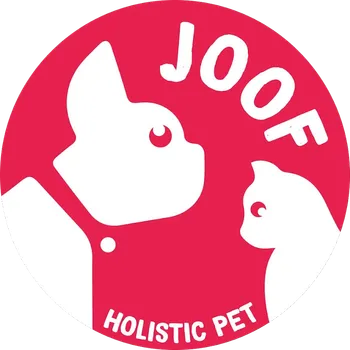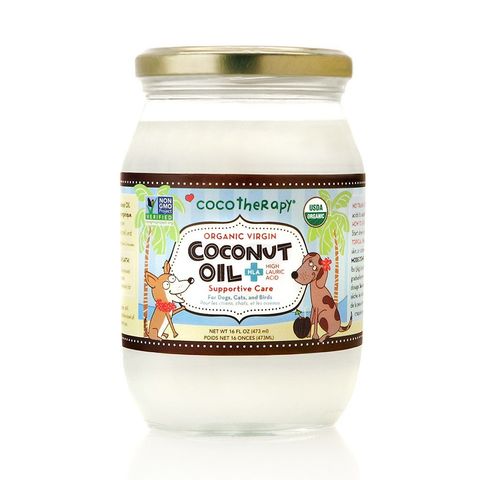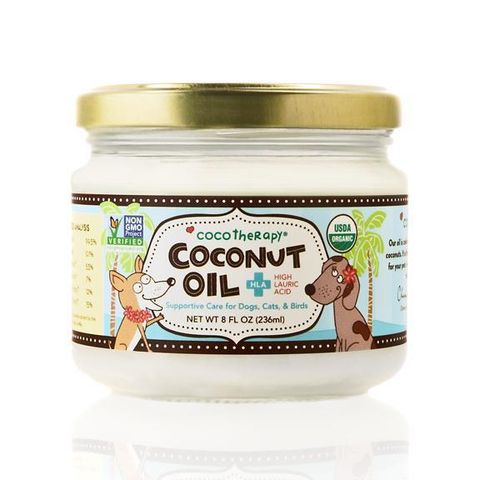
Recommended Article #26June23
Hi, Pet Parents Resources is a platform, where we share with you, what we research as pet parents ourselves. Here, we curate and give, what we hope would be, interesting to important informative articles, videos and even podcasts from our brand creators, experts, researchers, and more all over the world, to aid you in making better choices for your pets.
This recommended article "Fake Oils: Virgin Olive Oils Can Fake it, and So Can Virgin Coconut Oils" is curated and sourced from CocoTherapy. If you loved this article, please do feel free to share it around.
Fake Oils: Virgin Olive Oils Can Fake it, and So Can Virgin Coconut Oils
With an ever-growing number of food items to choose from off a supermarket shelf, it does become increasingly difficult to choose and check out only the healthiest and highest quality products.
Studies have shown that consumers around the world have a hard time understanding the nutrition labels on food. Modern marketing and heavy competition have also made it such that manufacturers are often dishonest, using misleading phrases on the packaging to make food appear healthier than it actually is, duping consumers into buying an inferior quality product.
Believe it or not, it does not end there. Some foods are actually not what they seem at all!
Food fraud is a surprisingly common problem, with many everyday food items falling prey to this deceptive practice.
Some of the most commonly faked foods include seafood - cheap, low-quality seafood is often packaged to appear premium. Parmesan cheese, like the packaged pre-grated Parmesan cheese ones, can be bulked up with fillers such as cellulose, and honey, which is commonly diluted with a sweetener like corn syrup. It is therefore important to read the nutritional label carefully to avoid being duped.
When it comes to oils, here are some of the warning signs to look out for, and the information needed to make sure you choose a genuine oil, packed full of the health benefits you are paying for.
Fake Olive Oil
Extra-virgin olive oil is one of the most-faked food products on the market. Due to its relatively high price compared to many other oils, unscrupulous manufacturers and dealers flood the market with counterfeit extra-virgin olive oil in an attempt to increase profits.
In 2010, researchers from the University of California-Davis tested olive oil sold in stores and found that 69% of imported "extra-virgin" olive oils were deceptively labeled.
Extra-virgin olive oil is made by crushing olives to extract their juice. For olive oil to qualify as "extra-virgin", olives must be from the first cold pressing of ripe olives, with no chemicals being used in the process.
Research showed that most of the tested oil samples failed to meet these standards. Common quality issues included samples that were oxidized, mixed with low-quality olive oil, or worse, diluted with less expensive oils such as canola or sunflower oil.
This essentially means that if you buy fake olive oil, you are really being cheated twice! First, the inferior oil is worth much less than you paid for it, and second, it is severely lacking in the health benefits of genuine extra-virgin olive oil.
Real extra-virgin olive oil has a wide range of health benefits. These include lowering cholesterol levels, guarding against obesity and type 2 diabetes, and protecting against skin cancer.
If you are not buying real extra-virgin oil, you will miss out on many of these fantastic health benefits. Fake olive oil is often heavily processed and loses many of its healthy properties.
With so much fake extra-virgin olive oil in stores, it pays to be vigilant while you shop. Here are a few pointers to help you out.
What to Look Out For?
Avoid oil sold in clear bottles
Light damages the oil, so if it is not in a dark bottle, skip it.
Look for a stamp of approval
Seals from the California Olive Oil Council (COOC), Extra Virgin Alliance (EVA), and UNAPROL (the Italian olive producers association) are some associations that are qualified to verify that the oil is of a high standard.
Look closely at the terminology on the label
Words like "natural", "pure", "premium" and "virgin olive oil" may possibly indicate a low-quality product. Always double-check the nutritional label.
Do NOT buy the cheapest oil on offer
Half a liter of good-quality oil should cost around $10. Top-quality oil can sell for up to $25 per half a liter. If the price is any lower, that is a sure sign of poor quality.
Coconut Oil
The benefits of coconut oil are becoming more widely well known, leading to a popularity increase in the product. As the demand for coconut oil increases, many retailers resort to looking for ways to drive down the price in order to make sales in volume.
The end result - good quality virgin coconut oil becomes more difficult to find. Cheaper versions are commonplace on supermarket shelves, often low in quality, and lack the health benefits of genuine virgin coconut oil. The harsh reality is that a poor choice of coconut oil purchased, in hopes to help with Fido’s allergies or ear infections, may well end up doing more harm than good.
There are two major types of coconut oil available to buy - "virgin" coconut oil and "RBD" coconut oil. Virgin coconut oil (unrefined) is processed naturally and retains its coconut flavor and smell. RBD (refined, bleached, and deodorized) coconut oil comes from inferior or sun-dried coconuts (copra), and has therefore been chemically processed to remove impurities. Unfortunately, this also removes its natural flavor and smell.
As virgin coconut oil is processed naturally, it retains the maximum amount of vitamins and nutrients possible - making it the very best choice for the health-conscious consumer.
Genuine virgin coconut oil has many health benefits, not just for humans, but for pets as well. These include the power to boost the immune system, support brain health, aid the digestive system, and fight infection.
The problem with cheap or fake coconut oils, whether labeled as "virgin" or "RBD", is that they are often very low in healthy nutrients, usually as the result of being made from coconuts that are not as fresh, or from old copra. Low-quality coconut oil may even contain heavy metals such as arsenic, copper, iron, and lead.
Moisture and impurities in coconut oil vary greatly from brand to brand, ranging from as low as 0.01% for an excellent virgin coconut oil, to as high as 0.2% + for unrefined coconut oil, going even higher for partially refined oil. The MCTs in coconut oil, specifically the "lauric acid" component, vary greatly as well, some lower than 40% while some go as high as 56%.
Just like with olive oil, many coconut oil products are also deceptively labeled. The packaging of the oil may use words such as "virgin", “extra-virgin”, "natural", or "pure", but the contents could possibly be far from it.
Common quality issues include coconut oil that has been blended with cheaper oils such as vegetable oil or palm oil, RBD coconut oil, improperly filtered oil, and coconut oil made with low-grade coconuts.
So, how should one go about choosing virgin coconut oil that is safe, natural, and packed full of the wonderful health benefits that make it a true "superfood"?
What to Look Out for in Top-Quality Coconut Oil?
Choose an oil-in-glass packaging
Plastic packaging is often an indication of low-quality oil. The best quality virgin coconut oil is always packaged in glass. Plastic will affect the taste of coconut oil and cause toxins to leach into the product. On top of that, improper sealing in the plastic packaging may also cause the product to be prone to spoiling. Glass, on the other hand, is the best option as it seals in the healthy nutrients in the coconut oil and helps keep the product fresh.
Check the taste and smell
Genuine virgin coconut oil has a fresh, “sweet”, distinct coconut aroma, and a mild coconut flavor. It should taste fresh, never rancid, or “sharp.” An oil that has a burnt or roasted smell or flavor, would mean that the oil has been processed using heat, and has therefore lost some of its healthy nutrients. If the oil has a “waxy”, oily scent along with a barely discernible coconut aroma, it is a sign that it may have been mixed with an RBD coconut oil or vegetable oil. RBD coconut oil has no smell or taste because of the way it has been processed.
Look for a cold-pressed oil
True cold-pressed coconut oil has NEVER been heated during manufacturing. While this process is more difficult and yields less oil, but the end product is far superior to low-quality coconut oil. Be particularly careful when choosing a cold-pressed coconut oil as the labeling on some products may claim the oil is cold-pressed, but there is often heat being used in the earlier stages of the manufacturing process. This brings us to this very important final point:
You Get What You Pay For
The low price of the coconut oil should already tip you off that the coconut oil is likely a lower-grade coconut oil. Unfortunately, consumers looking to purchase a "bargain" or inexpensive coconut oil are supporting deceptive practices. Stores continue to buy low-priced oils because they sell well as consumers become addicted to the attractive lower pricing. This has serious effects on the market of high-quality and authentic virgin coconut oil that is naturally more expensive.
Similar to olive oil, pricing in coconut oil does determine quality. Inexpensive coconut oil is going to be of inferior quality, mixed with RBD coconut oil, palm or vegetable oils, tainted with residual contaminants, and lower in healthy nutrients than an authentic, but more expensive, product.
Purchase your coconut oil from a company that cares
The best way to ensure you are buying the healthiest virgin coconut oil is to seek out a company passionate about their oil. Unless you are one of the luckier few who are able to buy your coconut oil directly from a coconut oil producer, the harsh reality is that you may not be getting what you think you are getting.
More than 95% of coconut oil brands in the United States are private labels, coming from multiple sources, even multiple countries. There are many multi-national commercial and government issues at play, such as lax government agency oversight, lack of industry standards and certifying agents, and corrupt food inspection agencies, both in the United States and overseas. Sadly, relying on labels claiming “cold-pressed, raw, or extra-virgin", and even with the USDA Organic seal does not guarantee quality or authenticity.
The founders of CocoTherapy, a family-based company who have been coconut growers and coconut producers for over three generations, have warned about adulterated and mislabeled coconut oils over the years, finding it frustrating that consumers, retailers, and government regulatory agencies are turning a blind eye to the common widespread fraud.
It is to CocoTherapy's belief, that the most serious problem is the fraud committed against the consumer, especially those purchasing virgin coconut oil to address specific health concerns.
CocoTherapy virgin coconut oil is a therapeutic oil, produced to address chronic or acute health issues; and it is CocoTherapy's commitment - to not have to be the biggest company, but to be one producing the very best authentic virgin coconut oil on the market.
CocoTherapy virgin coconut oil is cold-pressed below 115 F, using only 100% organic, non-GMO, and non-hybrid coconuts. All the coconuts used to produce the oil are tree-ripened for 12 months and sourced from the family coconut farm in the Philippines. The result? The highest quality virgin coconut oil that has the highest lauric acid content possible - the "super Ingredient" responsible for so many of the oil's amazing health benefits. CocoTherapy coconut oil also has a high percentage, at least 64%, of beneficial Medium Chain Fatty Acids (lauric acid, caprylic acid, and capric acid).
Although packaged and marketed for pets, CocoTherapy virgin coconut oil is human-grade and could be shared and used by the whole family, both humans, and pets alike.
You can purchase CocoTherapy virgin coconut oil from our retailers today!
You may find more interesting reads from JJ E-Homez Holistic Pet today! Look out for loads of information on our product pages, social media, especially our Pet Parent Resources page.
JJ E-Homez Holistic Pet, a Singapore online pet store that focuses on the holistic well-being of your beloved furkid. Our recommended products aim to support and improve health, emotional and physical well-being, and help your pet have a better quality of life without compromise. Look out for Essential, Trendy and Premium quality pet products that are specially curated, with the pet parents concerns' as a priority.
This blog first appeared on the CocoTherapy website, where this article "Fake Oils: Virgin Olive Oils Can Fake It, and So Can Virgin Coconut Oils" was curated and sourced from.
Original source: https://www.cocotherapy.com/blogs/blog/fake-oils-virgin-olive-oils-can-fake-it-and-so-can-virgin-coconut-oils
Thank you for reading! We hope to bring you more informative and exciting articles from other resources and our varying retail brands. Through them, we hope more and more pet parents could become their pet's wellness heroes, proactively taking control of their pets’ foundational health from within, with JJ E-Homez Holistic Pet - www.jjehomez.com.sg 😊
Disclaimer:
JJ E-Homez Holistic Pet has curated and reproduced this article in good faith, which may contain an element of consumer opinion, but cannot be held responsible for any information inaccuracies in it or any use assumed from this information by the reader. JJ E-Homez Holistic Pet welcomes positive recommendations for holistic healthcare products, but does not necessarily endorse the author’s opinion. We acknowledge each animal is an individual and may react differently to the highlighted product/s, and that there may also be other similar effective products available.
General recommendations made by JJ E-Homez Holistic Pet are solely for informational and educational purposes, and are not a substitute for the appropriate veterinary care. It is important to always consult professional help if you have concerns about your furkid’s health.


